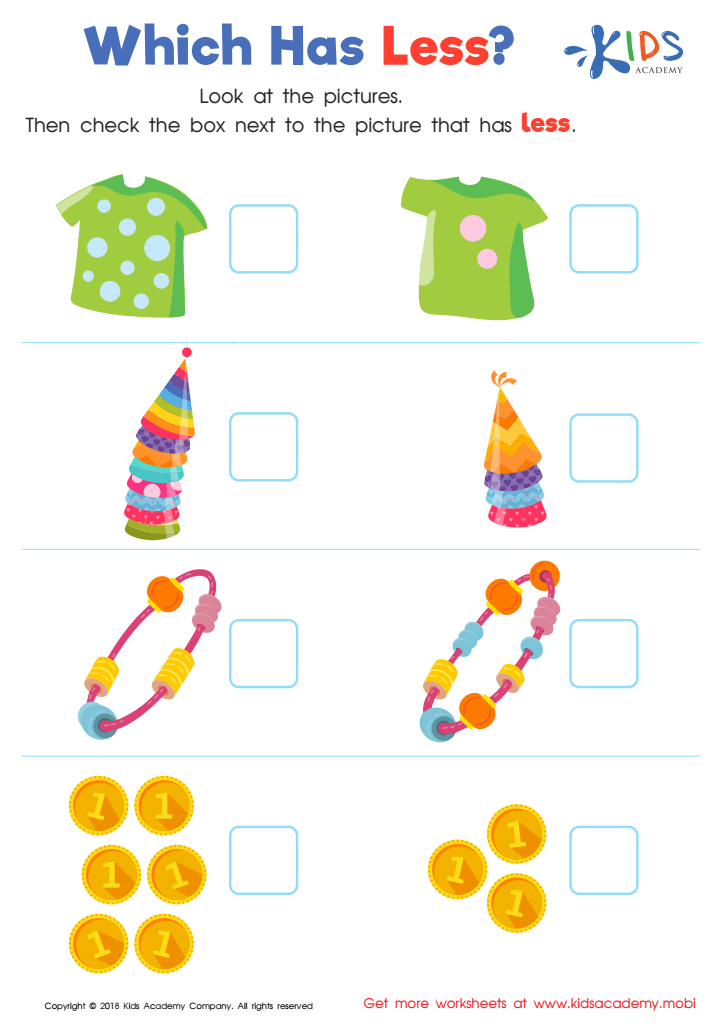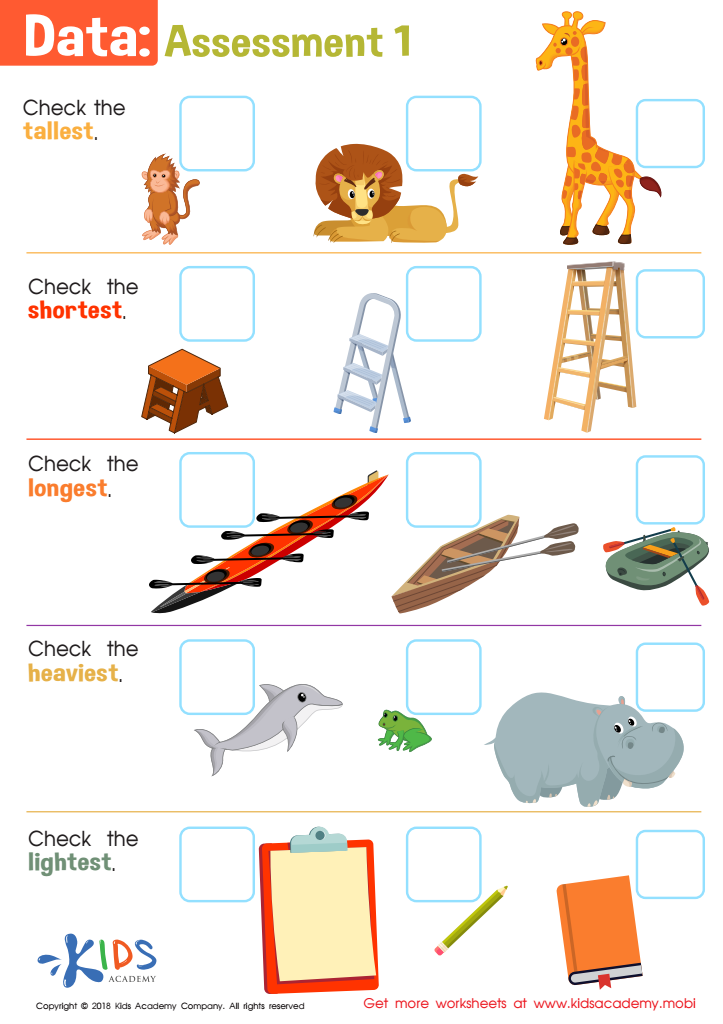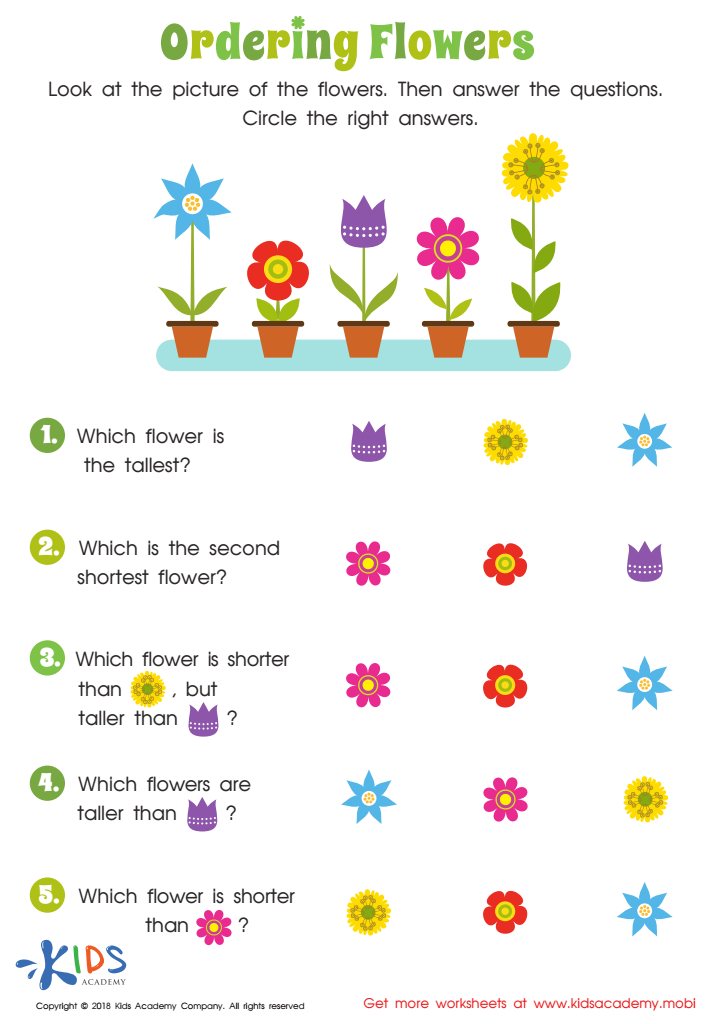Comparing numbers Easy Measurement Worksheets
3 filtered results
-
From - To
Discover our "Comparing Numbers Easy Measurement Worksheets" designed for young learners! These engaging worksheets help children understand the concept of comparing numbers through fun activities and colorful visuals. Students will practice identifying which numbers are greater or smaller, enhancing their number sense and measurement skills. Ideal for early grade classrooms, our worksheets offer a variety of exercises tailored to different learning styles. Reinforce essential math skills and boost confidence as students explore comparison concepts in a playful manner. Perfect for independent work or classroom use, these resources create a solid foundation for future math success. Start comparing numbers today!


Which Has Less? Worksheet


Data: Assessment 1 Worksheet


Ordering Flowers Worksheet
Parents and teachers play a crucial role in fostering mathematical understanding in early learners, and the skill of comparing numbers is fundamental in this educational journey. Understanding how to compare numbers lays the groundwork for various mathematical concepts, such as addition, subtraction, and ultimately, more complex operations like multiplication and division.
When children learn to compare numbers, they develop critical thinking skills and the ability to analyze information. This skill supports decision-making and problem-solving abilities, crucial in everyday life. For example, comparing quantities in shopping or sharing food helps children grasp real-world applications of math.
Moreover, developing proficiency in measurement enhances a child's spatial awareness and their understanding of dimensions and sizes, which are important in both mathematics and science. When children engage in easy measurement activities, they are not just learning numbers; they are also enhancing their observational skills and developing an intuitive sense of numerical relationships.
Encouraging comparison and measurement at an early age fosters a positive attitude towards math as a functional and enjoyable component of their lives. By nurturing these foundational skills, parents and teachers can ensure children are better prepared for future academic challenges and everyday tasks.
 Assign to My Students
Assign to My Students




















